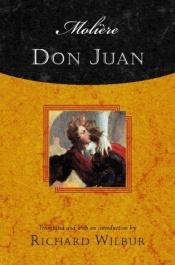Don Juan, by Moliere
Blurb
Dom Juan or The Feast with the Statue is a French play, a comedy in five acts, written by Molière, and based on the legend of Don Juan. The title of Molière’s play is also commonly expressed as Don Juan, a spelling that began in the seventeenth century. Molière's characters Dom Juan and Sganarelle are the French counterparts to the Spanish Don Juan and Catalinón, characters who are also found in Mozart's Italian opera Don Giovanni as Don Giovanni and Leporello. Dom Juan is the last part in Molière's hypocrisy trilogy, which also includes The School for Wives and Tartuffe. It was first performed on February 15, 1665 in the Théâtre du Palais-Royal, with Molière playing the role of Sganarelle.The play was originally written in prose, and was withdrawn after 15 performances after attacks by Molière's critics, who considered he was offending religion and the king by eulogizing a libertine. The play was a costly failure. Sganarelle, Dom Juan's valet, is the only character who speaks up for religion, but his particular brand of superstitious Catholicism is used more as a comic device than as a foil to his master's free-thinking.

 English
English Español
Español Deutsch
Deutsch










Member Reviews Write your own review
Be the first person to review
Log in to comment